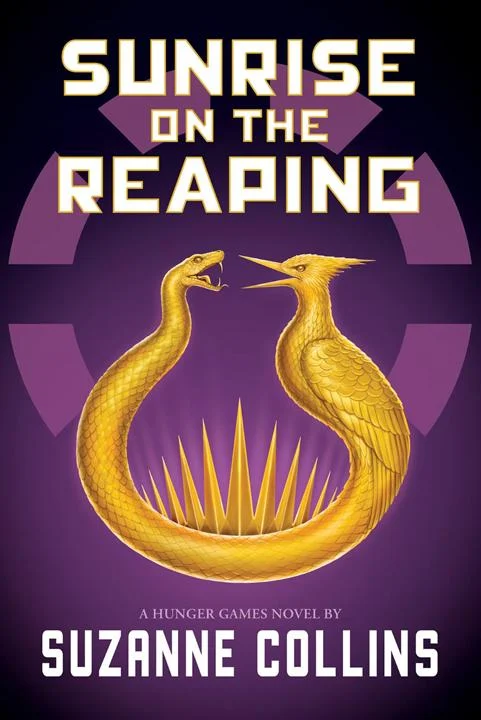In the 2010s, young adult dystopian stories dominated shelves. While the hype for such narratives has gradually declined, there’s still one series that fans refuse to leave behind. With five wildly successful films based on the book series and another on the way, Suzanne Collins’ The Hunger Games (2008-2025) continues to be a long-standing veteran of this beloved era. Years after the original trilogy wrapped, fans are still asking for more stories from the world of Panem. Still, there’s one in particular that we have been craving, and after years of pleas, Collins has finally released a tell-all novel centred around Haymitch Abernathy, everybody’s favourite District 12 rascal.
Sunrise on the Reaping (2025) tells the story of the 50th annual Hunger Games, in which child-tributes must fight to the death in a televised broadcast until only one remains. Except this year comes with a twist: twice as many tributes. When 16-year-old Haymitch is forced to compete, he must leave his mother, brother, and girlfriend behind to entertain pitiless viewers in the Capitol. What the Capitol doesn’t know is that Haymitch has a few tricks up his sleeve, which he must conceal from President Snow’s watchful eye.
This novel sees the return of many beloved characters and is overflowing with callbacks to the original series. Every time I saw a familiar name on the page, I got a boost of adrenaline. This book also sees the return of the Covey, who were first introduced in The Ballad of Songbirds and Snakes (2020). These musical nomads are given even more detail in Sunrise on the Reaping. Given the sort of man we know Haymitch will become, it was interesting to see a certain Covey member’s courageous nature through the eyes of a young Haymitch, who sways back and forth between rebelling and submitting.
Sunrise on the Reaping drops an exciting amount of lore about Haymitch and his relationships to known characters, but most of all, this novel helped me understand why Haymitch became a shell of his former self. Fighting for survival against 47 other tributes is traumatizing already, but unfortunately Haymitch’s suffering didn’t end there. Honestly, if I’d experienced half of what that poor man went through in this novel, I’d be reaching for the bottle too.
When I first heard this book was coming, I was curious to see how Collins would keep readers on their toes when so many of us already knew the ending. Nonetheless, Sunrise on the Reaping was filled with unexpected twists and not once did it deviate from already established lore. Even though I knew how the story was going to end, this book still managed to leave me speechless.
One of the most impressive parts of this book was how consistent Haymitch’s character was with the rest of the series. He’s introduced in the original trilogy as an alcoholic recluse with little to no hope of the Districts ever being free of Snow’s reign. However, as the story progresses, he becomes an important figure in the rebellion that brings down the Capitol and ends the Hunger Games. Sunrise on the Reaping balances these two halves of Haymitch’s character perfectly by showcasing how his drive to rebel often clashes with his obedient nature.
Another part of Haymitch’s character that I loved seeing was his ability to work a crowd. His talent is evident in the original series, but I absolutely loved seeing it on full display through his own interviews and Victory Tour. Even though Haymitch changes drastically between Sunrise on the Reaping and the original series, Collins impressively maintains Haymitch’s core personality and capabilities.
While scenes like Haymitch’s heartbreaking goodbye to his girlfriend Lenore Dove Baird on his way to the Capitol and the gruesome deaths of many tributes are permanently engraved in my mind, I had trouble visualizing more complex scenes. Some of the vocabulary used was a little too specific — unless it’s just me who didn’t know what a berm was before reading. Nonetheless, Collins is no doubt an expert in detailed imagery.
While some have accused Collins of milking the series, both myself and other hardcore fans of The Hunger Games believe that her choice to continue the series comes from a drive to discuss important topics regarding society, war, and politics. In an interview with David Levithan, Collins explained that her inspiration for Sunrise on the Reaping stemmed from Scottish philosopher David Hume’s criticism of inductive reasoning and his idea of implicit submission, particularly, “the easiness with which the many are governed by the few.” Given Donald Trump’s current oppressive rule over the United States, the ideas explored in this remarkable novel undoubtedly deserve serious consideration.


